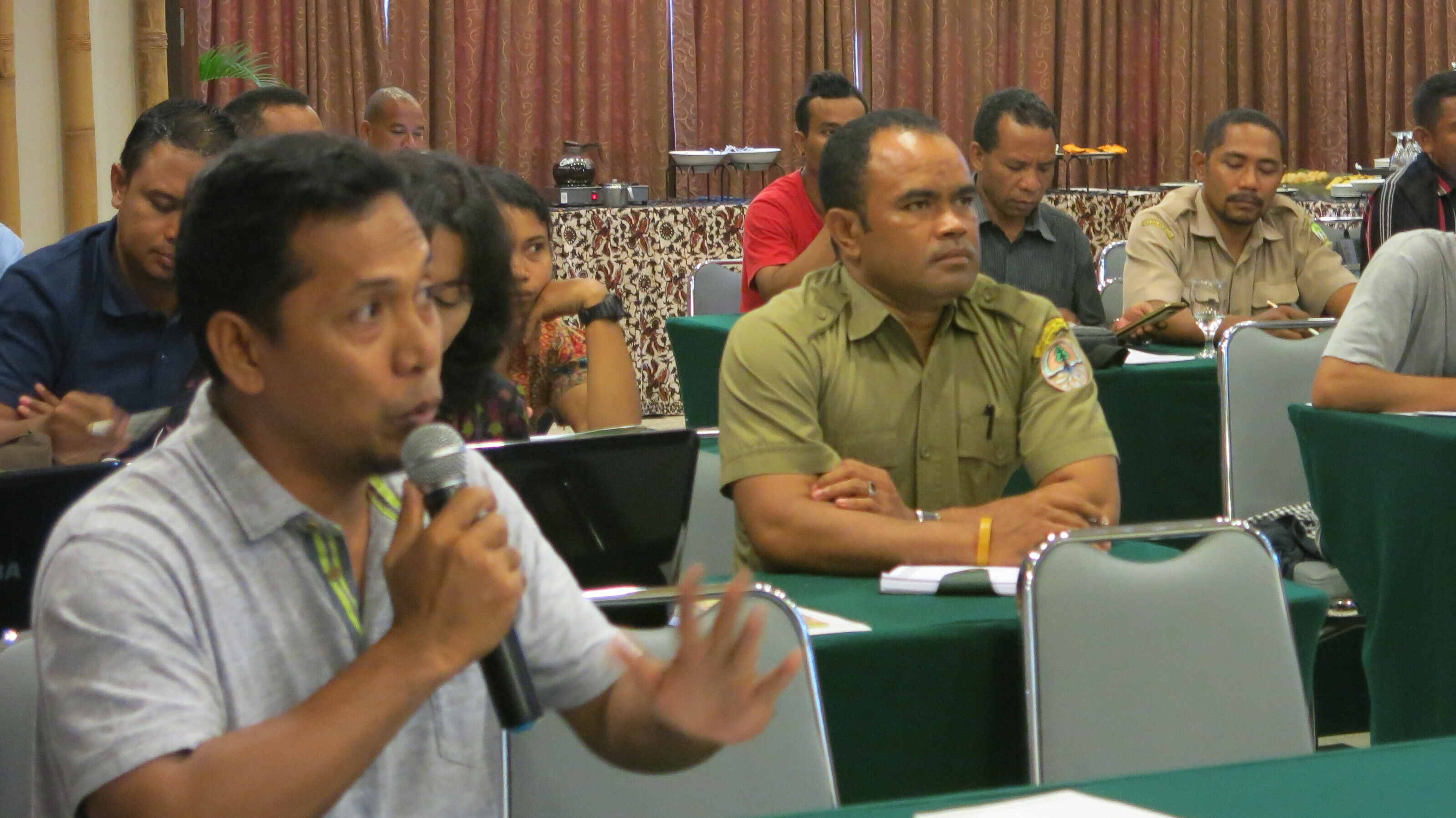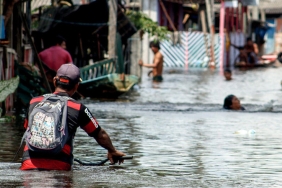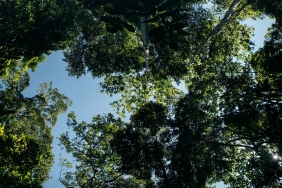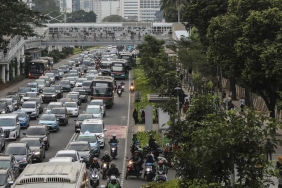THE ROLE OF NON-STATE ACTORS IN DEALING WITH CLIMATE CHANGE IN INDONESIA
Climate change is a global issue whose impacts have become a worldwide concern. Climate change is caused by human activities that increase the concentration and change the composition of greenhouse gases (GHGs) in the atmosphere. The rate of climate change has now reached a point that cannot be stopped, but can only be slowed down. Efforts to reduce the risk of climate change can be done through mitigation efforts, which are actions taken to reduce emissions or increase GHG absorption from various emission sources. Not only that, given the ongoing climate change, it is also necessary to take various adaptation efforts, which are adjustment actions to respond to the impacts of climate change that have already occurred, while utilizing opportunities and preparing to face other climate change impacts in the future.
Mitigation and adaptation efforts are very important to do, seeing the potential for various impacts that arise due to climate change. Based on the Indonesia Long Term Strategy for Low Carbon and Climate Resilience 2050 (Indonesia LTS-LCCR 2050), the impacts of climate change that have the potential to occur in Indonesia are increased air and sea water temperatures, increased sea water and the emergence of high wave phenomena. An increase in sea water temperature can have an impact on changes in the migratory pathways of marine life, coral bleaching, damage to mangrove and seaweed ecosystems. On the other hand, a sea level rise of as little as 0.01m/year could also turn into a major flood threat to about 1,700 hectares of coastal area in Semarang by 2030, with total damage estimated to reach Rp 6.1 Trillion.
The impact of extreme sea level rise due to climate change has also occurred in coastal Indonesia. According to Indonesia LTS-LCCR 2050, in 2008-2009 there was an increase in sea level of up to 0.8 meters, which caused sea water to enter several kilometers inland on the coast of Cirebon, West Java, causing material losses of up to Rp 1.29 Trillion/ha per year. Another impact of sea level rise is the potential for high waves. The Indonesia LTS-LCCR 2050 also predicts that there will be an increase in sea waves in the Jakarta coastal area by 2030, which is expected to cause tidal flooding in the North Jakarta area, and potentially cause losses of up to Rp 4.7 Trillion.
Understanding the complexity of tackling climate change, and the fact that the whole world is impacted by it, there are a number of collaborations between various global actors from different scopes of work to jointly try to tackle climate change. One such multi-stakeholder collaboration is the Paris Agreement, led by the United Nations Framework Convention on Climate Change (UNFCCC). This agreement is an important milestone that marks the first time an agreement can bring together all UNFCCC member states to work together under the bonds of international law in tackling climate change. While the agreement consists of commitments from individual member states, it also recognizes the important role of non-state actors in fulfilling these commitments. Non-state actors include local governments, civil society foundations and institutions, the private sector, and non-governmental and multilateral organizations.
UNFCCC states that non-state actors have a role in supporting and accelerating the implementation of the Paris Agreement, which in turn can mitigate the risks caused by climate change. Non-state actors are a heterogeneous group, so each has a different combination of expertise in supporting the fulfillment of national commitments. These resources include the ability to represent public opinion, information and expertise, access to networks, access to decision-making processes, and access to material resources. Often, non-state actors leverage their expertise by carrying out activities ranging from influencing the national agenda, proposing solutions, providing information as experts, influencing policy-making processes, raising public awareness, implementing policies, evaluating policies, representing public opinion, and representing the voices of marginalized communities.
Local Government Engagement
The role of non-state actors in the growing impacts of climate change is indispensable. The good news is that there have been a number of efforts to raise public awareness, and implementation of national policies initiated by a number of non-state actors in Indonesia, namely local governments and non-governmental organizations. Local governments are non-state actors that have a very important role in encouraging the implementation of national policies. As representatives of the government at the local level who have a number of political and economic powers, local governments generally have a major role in the implementation of national climate change policies. For example, the Provincial Government of Central Java has an installed capacity of rooftop solar power plants, both on and off the grid, amounting to 5.6-megawatt peak (MWp). In addition, the Central Java Provincial Government has also built rooftop solar power plants in government offices from 2017 to 2019. This is in line with the Central Java Provincial Regulation No.12/2018 on the Regional Energy Plan (RUED-P). Another example is the Bogor City Government, which has made efforts to reduce GHG emissions through waste management. Throughout 2020, Bogor has succeeded in reducing the amount of waste disposed of in the Galuga landfill by 16%. The reduction in the amount of waste to the landfill was successfully carried out through the waste bank initiative, the Waste Management Site - Reduce Reuse Recycle (TPS3R), and the Bogor Without Plastic Bags (BOTAK) program.
Non-Governmental Organization Support
Non-governmental organizations also play an important role in implementing national climate change policies. Their role in the regions is to advocate for local governments and assist communities in finding solutions to their problems that also become solutions to climate problems. One example is the work of Rumah Kolaborasi (RuKo), a non-governmental organization engaged in community and environmental empowerment in Lampung Province. RuKo assists robusta coffee farmers through the development of a Coffee Powder Business Unit in Ulubelu, Tanggamus Regency. RuKo has initiated the use of a solar dryer dome, which can solve problems in the coffee drying process. If initially the drying process of coffee beans takes up to one month, but with the use of a solar dryer dome, the drying process can be accelerated to only 10 days.
There are currently two dome dryers being used by members of the Margorukun Forest Farmers Group (KTH). However, due to limited capacity, only 30% of group members can utilize this equipment. "We hope that there will be an increase in the quantity of these solar-powered drying domes in the future, so that all members of the farmer group can benefit from them," said Sugeng Widodo, Chairman of KTH Margorukun.
Efforts to increase public awareness and knowledge of the utilization of renewable energy are also being made in Aceh. Aceh Youth Environmental Forum (AYEF) is one of the driving organizations in encouraging various efforts that can support the implementation of national climate change policies in Aceh. Initially, youth awareness of renewable energy and energy efficiency in Banda Aceh City was still very diverse. Some already have personal awareness, but have yet to fully apply it in their daily lives. Zikrullah, as the head of AYEF, believes that youth are the agents of change in tackling climate change. The principle is then embodied by AYEF into several activities, such as discussions with students on the use of renewable energy and environmental conservation, creative campaigns to welcome Earth Day, and education on renewable energy to a number of students and teachers in 50 high schools in Nangroe Aceh Darussalam Province. These activities have been carried out since 2017 and are a form of AYEF's commitment in campaigning for increased use of renewable energy and reduced use of fossil energy to the general public as well as students or academics.
These two movements carried out by non-governmental organizations in Lampung and Aceh show how important the involvement of non-state actors is to support the fulfillment of national climate targets. Non-state actors have a number of different skill sets than state actors, making them differentiated positive impact players at the forefront of climate change mitigation."
Through their individual efforts, non-state actors can work together to curb climate change. Local governments and non-governmental organizations can make an impact in the form of implementing national climate change policies. In addition, non-governmental organizations can also support the implementation by becoming a driving agent to increase public awareness and knowledge of climate change issues. The actors have a variety of expertise, so each has its own strengths. Thus, the unity of these various strengths is expected to produce good results. In other words, tackling climate change impacts cannot be done only by the national government, but all parties need to contribute to tackling climate change together. It is important to continue to open and provide space for collaboration between sectors in order to achieve greater impact in climate change mitigation efforts.
Not only in Lampung and Aceh, there are still many stories of communities and grassroots non-governmental organizations engaged in developing and disseminating information about renewable energy in various regions in Indonesia. Discover other interesting stories that have made an impact locally, in the book "Stories from the Field". This book is the result of a writing workshop organized by Yayasan WWF Indonesia and partners Aceh Geothermal Forum (AGF), AYEF, Formerci, RuKo and Yayasan Pionir Bulungan. The full stories can be enjoyed in written and audio-visual form at: Stories from the Fields book link and find the English version in the attached document.





